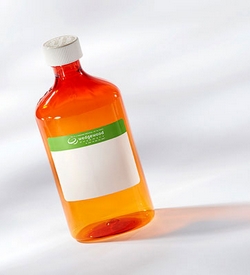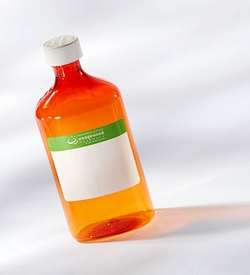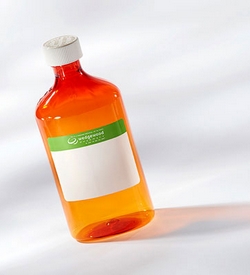Providing Quality & Trust
Furosemide Pimobendan Oral Oil Suspension
Wedgewood Pharmacy
Starting at $295.00
$295.00 Each
Detailed Description
Furosemide Pimobendan Oral Oil Suspension
Furosemide / Pimobendan Oral Oil Suspension
Prescribed For: Dogs
May be Prescribed For: Congestive Heart Failure
Furosemide / Pimobendan may be prescribed for
- Congestive Heart Failure
One of the dosage forms available for Furosemide / Pimobendan is Oral Oil Suspension. Wedgewood Pharmacy’s oral suspensions and solutions are a familiar and convenient dosage form. Oral suspensions and solutions can be administered directly into the mouth using a dosing syringe or mixed with a small amount of food. They offer a wide range of flavoring options, and flexible dosing adjustments.
32 strength combinations of Furosemide / Pimobendan Oral Oil Suspension are available.
- Furosemide from 5 mg/ml to 60 mg/ml
- Pimobendan from 1 mg/ml to 8 mg/ml
General Drug Information and Indications
Furosemide is the most commonly used diuretic in veterinary medicine. It is used in dogs and cats as a part of the medical management of congestive heart failure, and other conditions where the body is retaining too much fluid. It is similarly used in horses to treat fluid retention or edema, and to possibly diminish exercise induced pulmonary hemorrhage in racehorses. Diuretics act upon the kidneys, causing increased excretion of both electrolytes and fluids.
Furosemide is used intravenously in emergency settings and orally for longer term maintenance. The diuretic effects of furosemide take place within minutes after intravenous injection, with a peak effect at about thirty minutes. Onset of action after oral administration is about an hour. Furosemide is not recommended for the treatment of most kidney disease. Although it may cause a transient increase in blood flow to the kidneys, it does not improve kidney function and may put the animal at increased risk for dehydration or electrolyte imbalances. Diuretics will do little to relieve fluid accumulation and edema caused by low blood protein or vasculitis and may even worsen the animal's overall condition.
Potent diuretics like furosemide should always be used with appropriate monitoring, as they can produce dehydration and electrolyte imbalances. Animals that are eating and drinking well can usually replace fluids and correct electrolyte imbalances within 24 hours. Furosemide is FDA approved for use in dogs, cats, and horses. When the appropriate form or dose of this drug is not available through a veterinary pharmaceutical manufacturer, it may be compounded by a specialty pharmacy.
Pimobendan is a new and important drug that is used to treat congestive heart failure (CHF) in dogs. Large clinical studies support the use of pimobendan in dogs that have clinical signs of CHF and in breeds of dogs (Doberman pinschers and others) that are at risk for developing CHF. Pimobendan both strengthens the heart's ability to contract, and dilates blood vessels throughout the body. It is an oral medication and in most cases is given with other cardiac medications and diuretics such as furosemide. Recent studies have shown that dogs that receive pimobendan (with other cardiac drugs) both survived longer and had better quality of life scores than dogs receiving alternate cardiac treatments. For some breeds, including Doberman Pinschers, the increased time until the onset of clinical signs and the increase in survival time is dramatic. Dogs with clinical signs of CHF may show improvement within seven days of starting treatment. Cardiac enlargement may be improved within the first month of treatment. Pimobendan is a sufficiently well researched and important new drug. In 2009 the American College of Veterinary Internal Medicine included pimobendan in their consensus statement regarding the treatment of chronic valvular heart disease. Pimobendan is FDA approved for use in dogs. It is sold under the trade name of Vetmedin®. When the appropriate form or dose of this drug is not available through a veterinary pharmaceutical manufacturer, it may be compounded by a specialty pharmacy.
How to Give this Medication
Give this medication to your pet exactly as your veterinarian prescribes. If you miss giving your pet a dose of pimobendan, give the next dose as soon as you remember or, if it is close to the next scheduled dose, return to the regular schedule. Do not double dose to catch up.
Pimobendan should be given on an empty stomach, preferably an hour before feeding.
Wash your hands after giving your pet this medication.
Side Effects
Be sure to discuss any side effects with your veterinarian immediately.
Side effects that were identified as a part of the field study for FDA approval include loss of appetite, low energy, diarrhea, difficulty breathing. Less common side effects include change in kidney function, weakness and balance issues, fluid accumulation in the lungs or abdomen, cough, and changes in heart rhythm.
Precautions
Keep this and all drugs out of reach of children. This drug should only be given to the animal for which it was prescribed. Do not give this medication to a person.Federal law restricts this drug to use by or on the order of a licensed veterinarian.
Pimobendan and other cardiac drugs may improve heart function but they do not cure the underlying disease process. In all likelihood, your animal will remain on treatment for the rest of its life.
There are cardiac conditions where pimobendan is not an appropriate medication. These include any cardiac condition in which increasing cardiac output is not desirable: for example, hypertrophic cardiomyopathy, or aortic stenosis.
Pimobendan has been associated with an increased incidence in abnormal heart rhythm (arrhythmia) but the progression of CHF is also been associated with an increased incidence in abnormal heart rhythm. It is not completely understood at this time if the use of pimobendan in animals with CHF is causing an increased incidence of arrhythmia independent of the underlying heart disease.
Pimobendan has not been evaluated in pregnant animals, nursing animals or very young animals.
Drug Interactions
Be sure to review with your veterinarian any medications or supplements your pet may be receiving.
Calcium channel blockers and certain beta blockers may decrease the effects of pimobendan.
Overdose
If you suspect your pet or another animal was overdosed accidentally or has eaten this medication inadvertently, contact your veterinarian or the A.S.P.C.A.'s Animal Poison Control Center at 888.426.4435. Always bring the prescription container with you when you take your pet for treatment.
If you or someone else has accidentally ingested this medication call the National Capital Poison Center at 800.222.1222.
Storage
Different strengths or dosage forms of pimobendan may have different storage requirements. Read the labeling or ask your pharmacist for the storage requirements of the prescription you receive.
Powered by nopCommerce
This site is running in live payment mode. Real payments will be processed.


